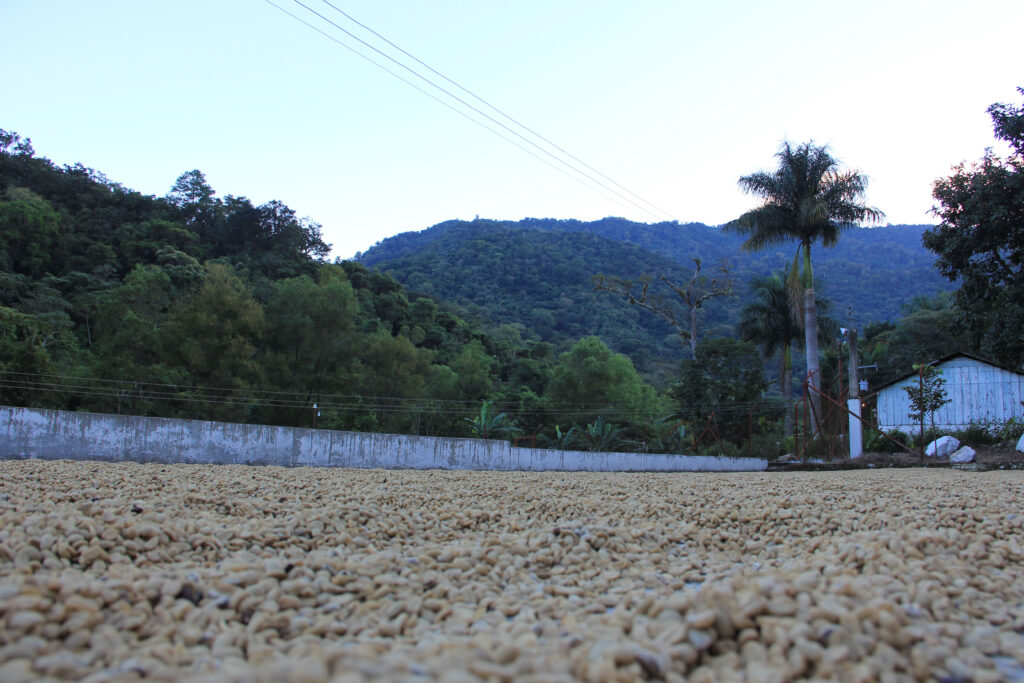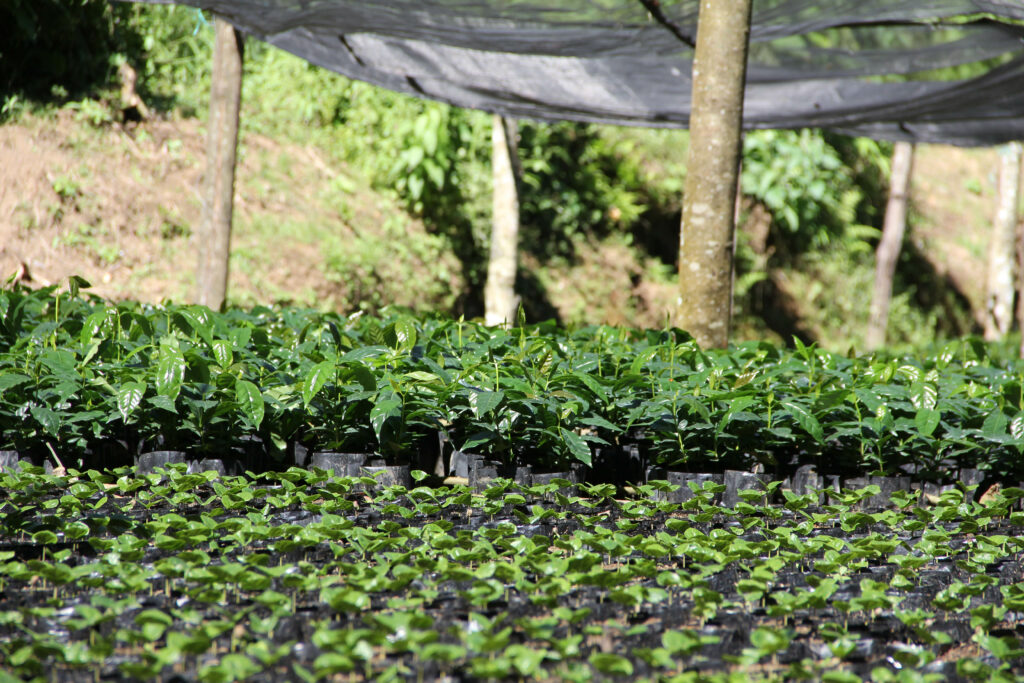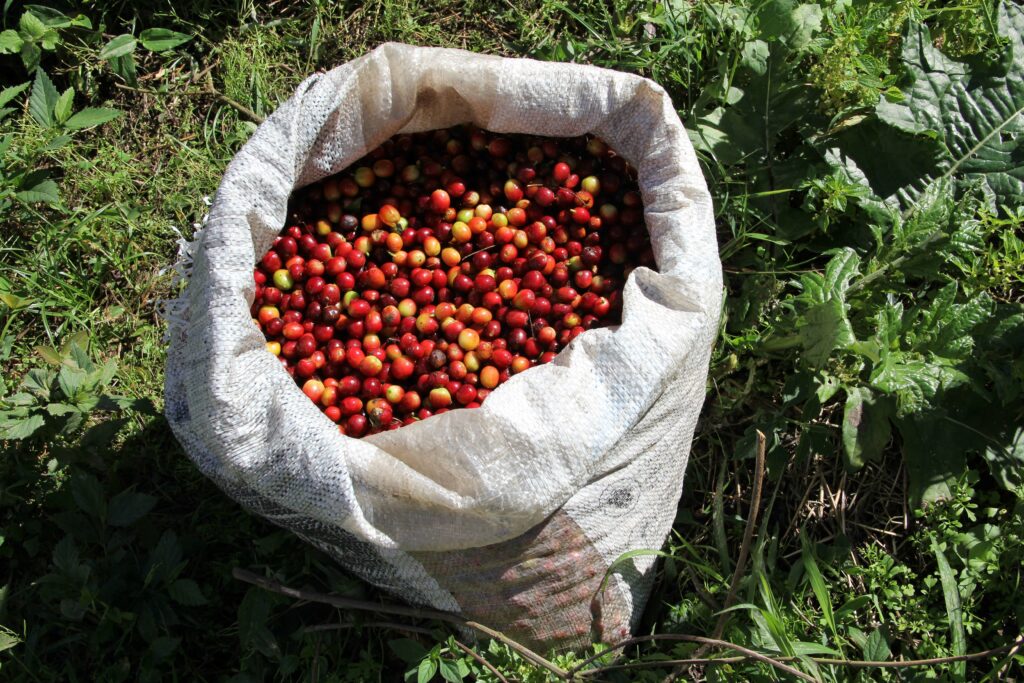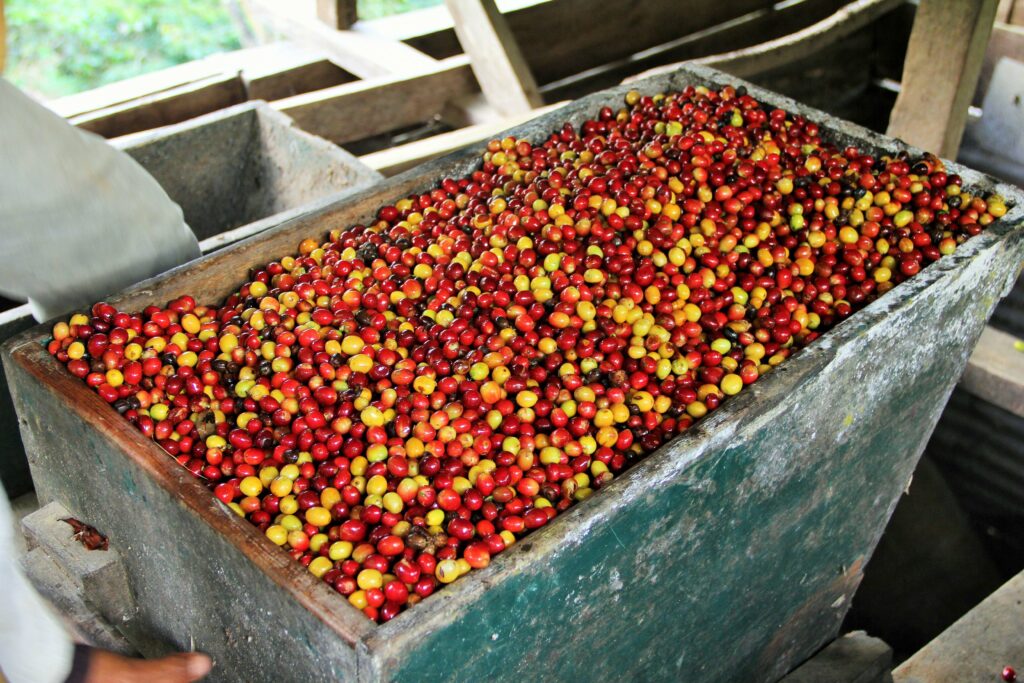Finca Nueva Esperanza, Mexico: The Battle for Work
As the harvest initiates throughout Mexico, the producers are facing continuous struggles due to the restrictions in place for COVID. Within the Chiapas region of Mexico sits Finca Nueva Esperanza with 150 hectares of Organic Typica, Catuai, Red and Yellow Caturra, and Red and Yellow Bourbon. On average, the farm produces nearly 1,300 bags of coffee each year at 1,300 masl. These coffees are picked and washed before being sold to us here at Mercanta. Yet, Gabriel de La Fournière with ECOM has mentioned that the farm has struggled due to labor shortages this year, so the crop is taking a hit.

Pergamino drying under the setting sun
Alan Green, the owner of Finca Nueva Esperanza, noticed a 20% decrease in labor this year. Usually, Green mentions, he normally has roughly 60 workers each year. The farm hires staff that come from Guatemala due to their reliability and efficiency. This means that people move to Mexico from Guatemala for 3-4 months and then return to Guatemala to work the coffee harvest in this region. Yet, previous years have revealed a decline in labor availability due to the low value of the Mexican peso against the Guatemalan quetzal. This year was shockingly different, according to Green, since there were more Mexican workers compared to previous years.
2020 brought with it additional strain as COVID swept through the world, leading to border restrictions in places such as Mexico, making it increasingly more difficult for people to enter the country for work. More than half of producers interviewed by the ECOM Sustainable Management Services team, noted a problem with finding work for the 2021 harvest. Chiapas was not infected too much by the virus, as only 20 cases have been reported in 2021 so far.

Young coffee seedlings awaiting planting
Lack of labor can have trickledown effects within the farm in addition to the increase in production costs. On average, production costs increased from $110.00 Mexican pesos to roughly $130.00 – 140.00 Mexican pesos today. Quality may be impacted due to the lower number of workers which leads to uneven picking. With unevenly ripened coffee cherries, this can severely alter the quality of the coffee. Of the producers interviewed, most have said that 14.5% of the coffee has also been lost because it was not harvested in time.
Aside from harvest, the farm maintenance is also reduced leading to the increased spread of pests and disease due to reduced pruning and collection of dropped cherries. Once coffee cherries begin to rot underneath the coffee trees; this can promote the spread of the Coffee Berry Borer and lead to the spread of the pest to healthy trees. And without the regular pruning of the coffee trees, it can create a more hospitable environment for Coffee Leaf Rust. Thus, creating a vicious cycle: less workers, increased costs, increased pests and diseases, reduced yield/quality, reduced income.

Pickers efficiently fill bags of coffee cherries
With the aforementioned issues, there is hope and potential for producers to recover. Improved harvesting mechanisms such as mechanized selective machines that can speed up the harvest and ensure only ripe cherries are picked can help replace the lost support from employees unable to venture across the Guatemala-Mexico border.
Last year, the market did take a turn and according to Alan, Finca Nueva Esperanza had a stable yield in 2020, but the price was lower compared to other years. He predicts an increase in price this year, but not recovered to pre-COVID markets.

Freshly harvested cherries ready to be processed
Alan mentions that although he had a reduced labor this year, the harvest is going strong, and the workers remain efficient in order to evenly harvest the coffee. The weather was cold during the last flowering and fruiting event allowing for a reduced rate of picking. This means that there was an extended ripening period. Coffee did not rot with fewer pickers and Alan is hopeful he will be able to sell all of his coffee. Alan also noted that all of his varieties are resistant to Coffee Leaf Rust, so little to no coffee yield is lost to the fungus.
Additionally, specialty coffee merchants such as Mercanta can take into account the increase in production costs and the struggles faced by producers during this shortage. If higher prices are paid to producers, they will be able to move forward and have a stronger 2022 harvest in the future. Consumers can also support these producers by purchasing coffees from these regions and accepting the higher value.
Finca Nueva Esperanza will be available in the UK this Spring – so be sure to keep an eye out for this great lot!